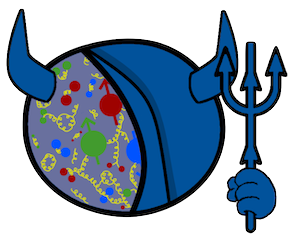Speaker
Description
Level anticrossings (LACs) occur in diverse quantum systems and underpin a plethora of fascinating phenomena. Of particular interest here is the role of LACs in inducing nuclear spin hyperpolarization for sensitivity-enhanced nuclear magnetic resonance (NMR) spectroscopy and imaging. Theoretical and experimental manifestations of LACs in nuclear spin systems incorporating protons from parahydrogen (pH2) will be discussed. While the proton singlet state in pH2 is itself invisible to NMR due to the absence of any magnetic dipole-allowed transitions, chemical hydrogenation reactions provide a means for introducing the symmetry-breaking interactions necessary to transform the pH2 singlet order into NMR-observable spin order. Indeed, proton hyperpolarization levels up to 100% are theoretically possible, corresponding to high-field NMR signal enhancements of around four orders of magnitude relative to the corresponding signals obtained at thermal equilibrium. In practice, however, the achievable hyperpolarization level depends on many factors, including hydrogenation chemistry, spin relaxation, and coherent spin dynamics. Several examples of how LACs can be exploited to transform pH2 spin order into NMR-observable hyperpolarization will be presented. In systems of chemically inequivalent protons incorporating pH2, adiabatic passage through LACs is shown to elicit useful transformations of singlet order. Moreover, this can be combined with high-field coherence transfer pulse sequences to complete the spin order transfer. Density matrix simulations indicate that such hybrid spin order transfer protocols can achieve efficiencies approaching the theoretical maximum under favorable conditions, with the help of selective deuteration in the coupling network. LACs may also play a role in surface-mediated hyperpolarization of solvents like water, methanol, and ethanol, from pH2.

